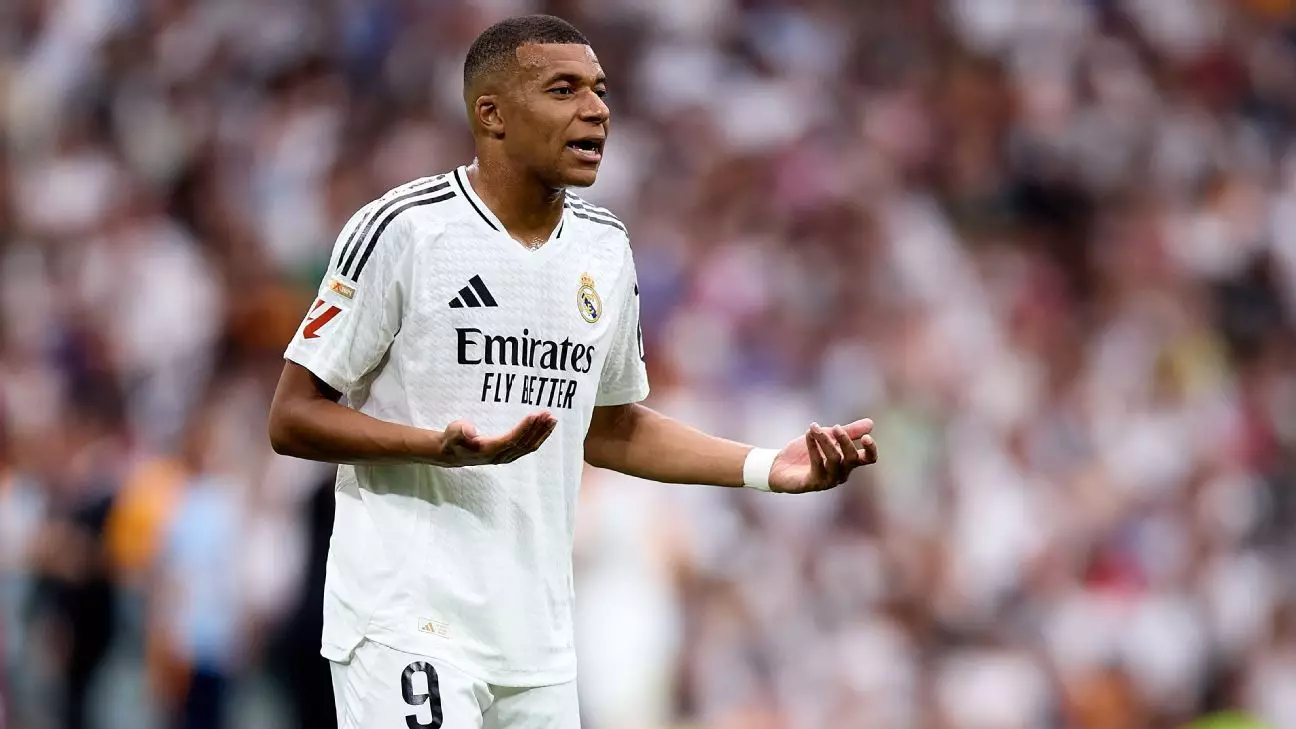In the realm of professional football, the interplay between club responsibilities and national team obligations often creates a complex web of expectations and scrutiny. Recently, this theme has come to the forefront in discussions surrounding Kylian Mbappé, the French national team captain, and his absence from international duty due to injuries. This situation spotlights the delicate balance between a player’s allegiance to their club and their commitment to represent their country on the global stage.
Kylian Mbappé, a prolific forward for Real Madrid and a national treasure for France, found himself in a controversial position post-injury. Following a thigh injury incurred during a La Liga match against Alavés, Mbappé was initially ruled out for three weeks. This absence led to speculation about pressure from Real Madrid to prioritize club commitments over national responsibilities when it came time for international fixtures against Israel and Belgium.
France coach Didier Deschamps addressed these rumors head-on. He unequivocally stated that there was no directive from Real Madrid influencing Mbappé’s decision to withdraw from the national squad. Instead, Deschamps emphasized that the decision to exclude the star player was made with the best interests of the team in mind. Balancing squad dynamics and training schedules is a nuanced task, particularly when dealing with a player of Mbappé’s caliber who, at times, might not be performing at full strength.
Team Dynamics and Captaincy Challenges
The concern over Mbappé’s fitness came to light after he made a swift return to club action, appearing both as a substitute against Lille in the Champions League and starting in a match against Villarreal. Deschamps noted that Mbappé was not at peak performance during the Villarreal game, leading to his early substitution, which raised further questions about the wisdom of making him captain amidst physical issues.
In response to the critical narratives circulating within French media, midfielder Aurélien Tchouaméni, who has stepped in as captain for the national side in Mbappé’s absence, conveyed that injuries are part of football, and there was no pressure on Mbappé from Real Madrid. Tchouaméni’s perspective is critical—it illustrates the camaraderie among teammates and the understanding needed when navigating injuries. His comments reflect a broader truth about the nature of modern football, where mental resilience often plays as significant a role as physical fitness.
Adding another layer of intrigue to the discussion around the French national team, media criticism has previously highlighted players’ fashion choices as they arrive for international duty. Liverpool defender Ibrahima Konaté drew attention with a hooded ensemble that obscured his face, leading to a wave of criticism deeming it a spectacle rather than appropriate attire for national representation. Jerome Rothen, a former player, voiced his discontent, labeling it as a “circus.” Yet, on social media, defender Jules Koundé defended his peers, arguing against heightened scrutiny over personal expression.
This situation underscores the challenging balance players must maintain—while individuality and personal style are celebrated in football culture, they must also confront public expectations regarding professionalism and propriety. The juxtaposition of these views invites significant reflection on the evolving perceptions of athletes, especially those under the unyielding spotlight of critical media.
As international breaks approach, the discourse surrounding player availability and their complex decision-making processes continues to be a pertinent topic. Mbappé’s situation serves as a representation of the modern athlete’s dilemma: navigating club pressures and public expectation while remaining committed to national duties. The disagreements and discussions that ensue highlight not only the personal choices athletes face but the vital role of management in making informed decisions that impact team dynamics. Football, at its core, is not only about the game; it is about establishing a dialogue around loyalty, representation, and the art of balancing professional responsibilities.

Leave a Reply